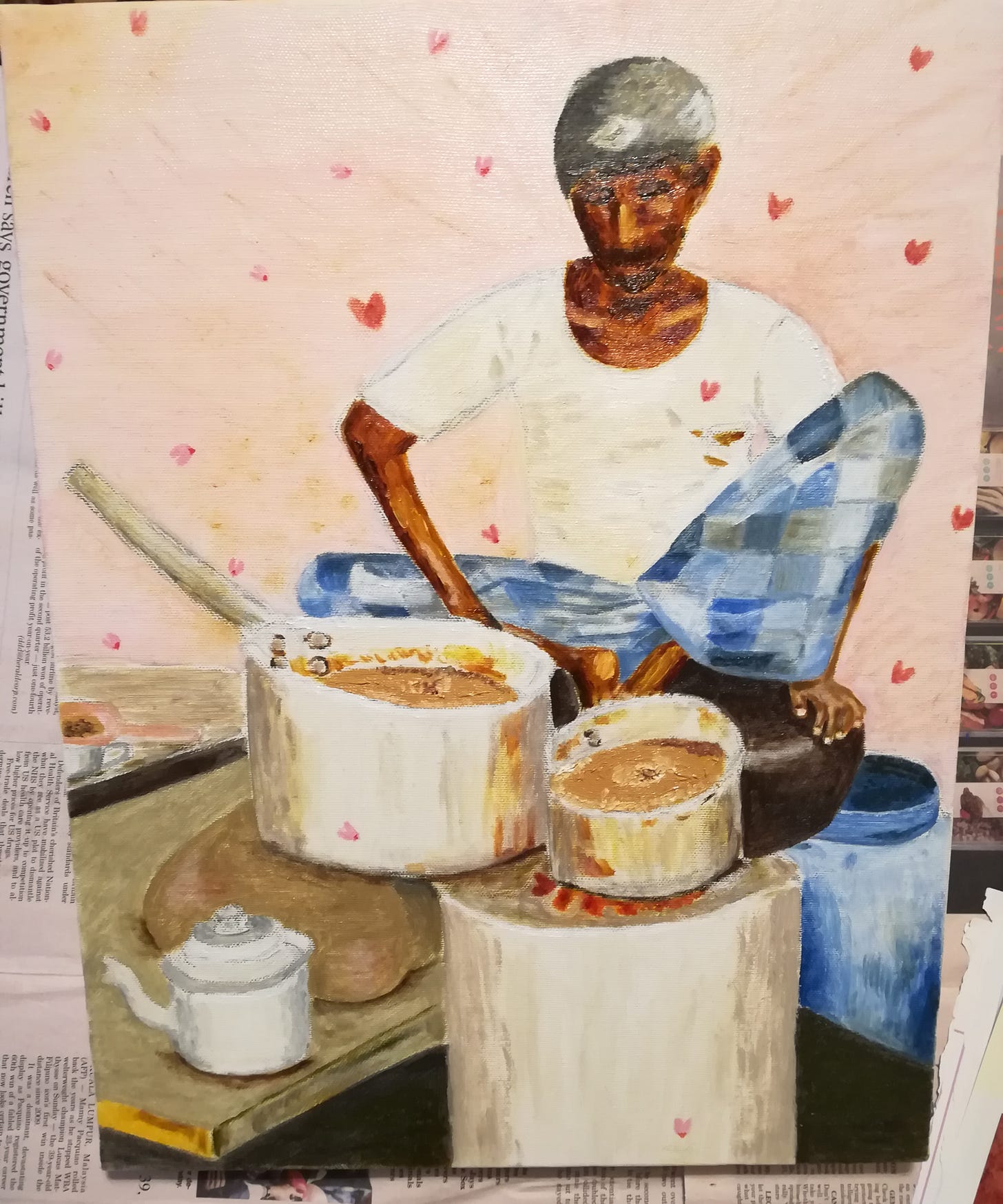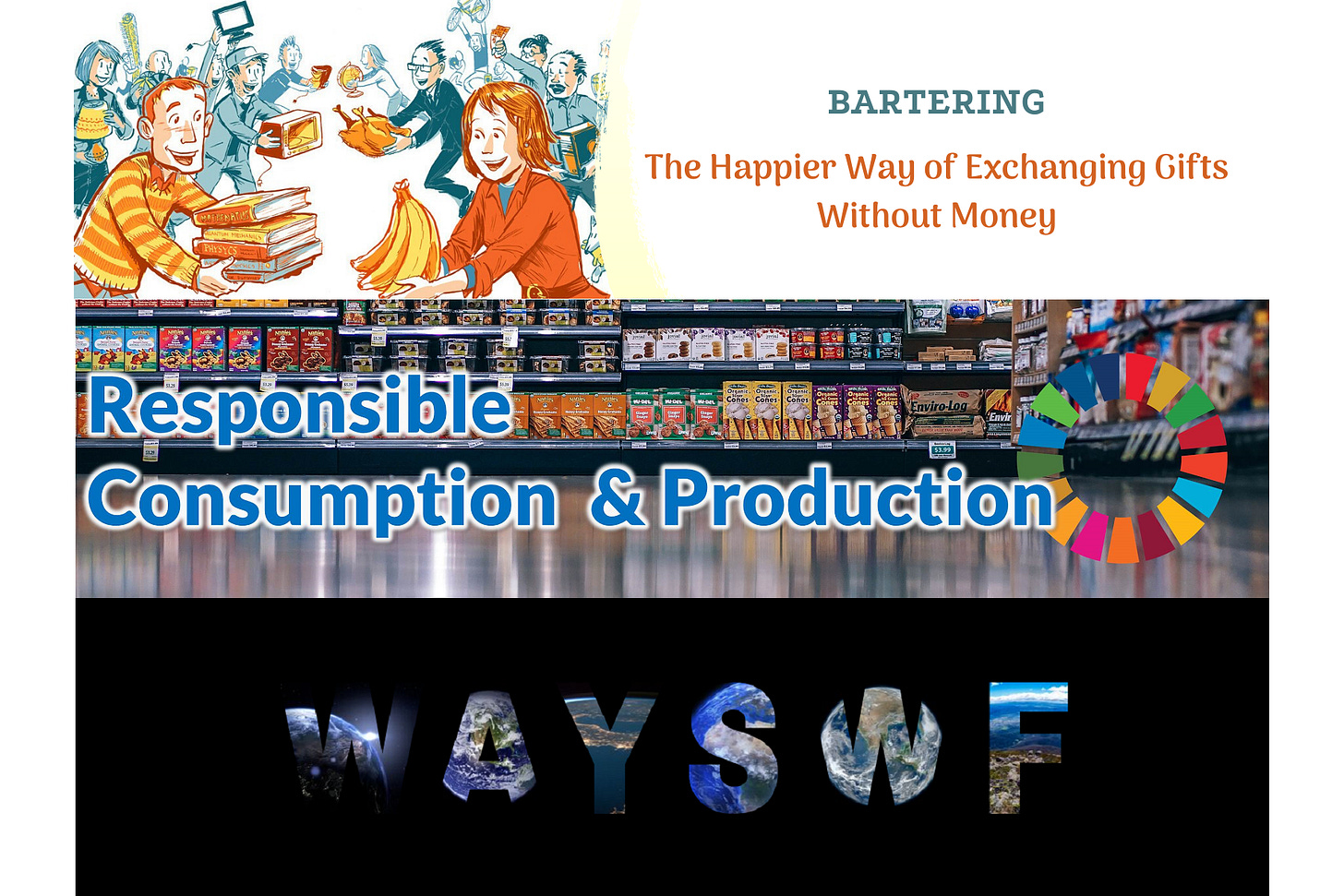Bartering: The Happier Way of Exchanging Gifts Without Money
Authored & Narrated by Tomoko Kimura | Illustrated by Oğuz Yılmazlar & Tomoko Kimura | Edited & Published by Lee Vallance

Another idea that I would like to introduce is: battering. Bartering can make our life more comfortable and creative, as well as decrease the consumption of natural resources and the emissions of waste, knowing the lifecycle of the services/products.
I have exchanged many things with my friends, flatmates and colleagues. For example, when my colleague had a lot of brown rice, I received some and gave her a bottle of soy sauce, since I had an extra one. When my friend offered me some homemade pomero jam, I shared some herb tea bags. One of my kind colleagues gave me some chocolates when I was tired, then I made Indian sweets called laddu for my teammates, including her.
Though bartering sometimes happens with negotiation, most of the time it happens naturally by trying to give something to someone. Also, it is not necessary to buy something to give, as we can create gifts by ourselves.
Not only things but also knowledge can be shared. For instance, I made Indian masala chai (milk tea with spices) when I visited my neighbour who was teaching me oil painting. (I was a beginner, and she was supporting me so kindly for my first work, “a chai shop on the street in India”). Also, I translated a picture book about the life of a Japanese cherry blossom (Sakura) into English, when an Indian friend of mine invited me for dinner at her house.

Through bartering things and knowledge, we learn about the large part of the life cycle of what is shared: who makes it, how it is delivered, and learn about the feelings of those who are involved, and so forth. Of course, fewer plastics and other toxic materials are used. In this way, bartering creates a more joyful daily life while avoiding the negative side-effects of consumption and production.
Bartering and the Meaning of Money: My Experience in India
One significant experience that made me realize the importance of bartering was in India, where I lived for 2 years. It occurred in the period of demonetisation implemented by Prime Minister Modi in 2016.
In India, we can still find opportunities to negotiate a price. For example, when you ride on a rickshaw or buy clothes in a local market, prices are not fixed. When you examine the price, you need to think about how much value you attach to the service or product. When you are in a hurry, you might pay a bit more for a ride on a rickshaw, since it is essential and valuable. You might let the driver keep the change because the conversation during the ride is fun.
Being accustomed to a fixed price, it is easy to lack a sense of value; even so, we can decide how much value each good or service has.
On 9th November 2016, Prime Minister Modi introduced demonetization of 500-rupee and 1,000-rupee banknotes. Suddenly, the high-value notes became just paper, without any value. At that time, I fully realized that money itself does not have any value. It is just a means to represent value.
Just like other people, I did not have enough cash, so I tried bartering. I offered Indian sweets that I had, in exchange I received some oranges and apples from my favourite fruit shop. Considering the price, what I gave was more expensive than what I got, but I was happy to receive what I needed and gave what the other person was willing to receive.
From those experiences in India, I feel that establishing my sense of value is important for responsible consumption and also for a peaceful life.
Wild plants, bartering ... what are your creative ways to approach SDG#12?
I have shared my personal experiences and thoughts on enjoying wild plants and bartering, which are making my daily life happy as well as minimizing my emissions and use of natural resources. I would be glad to hear that they are good examples for you to adopt, but it would be much more exciting to create your unique ways to be a conscientious consumer of limited resources.
So, what do you plan to do? I look forward to hearing about your ideas and actions someday soon!



